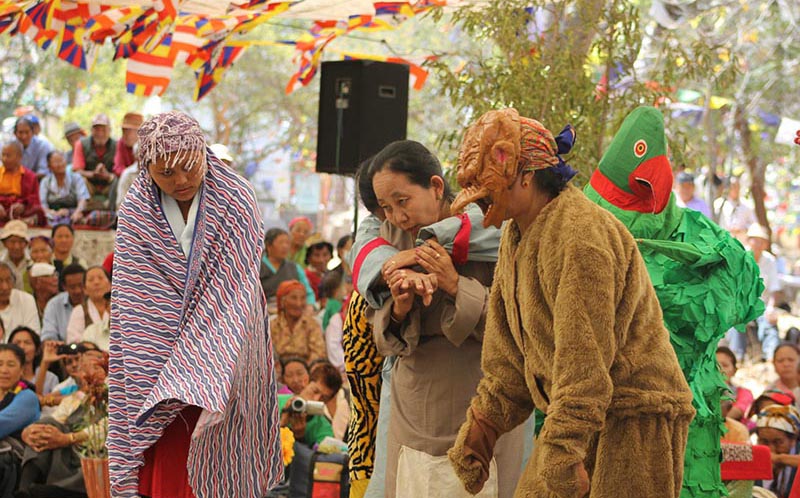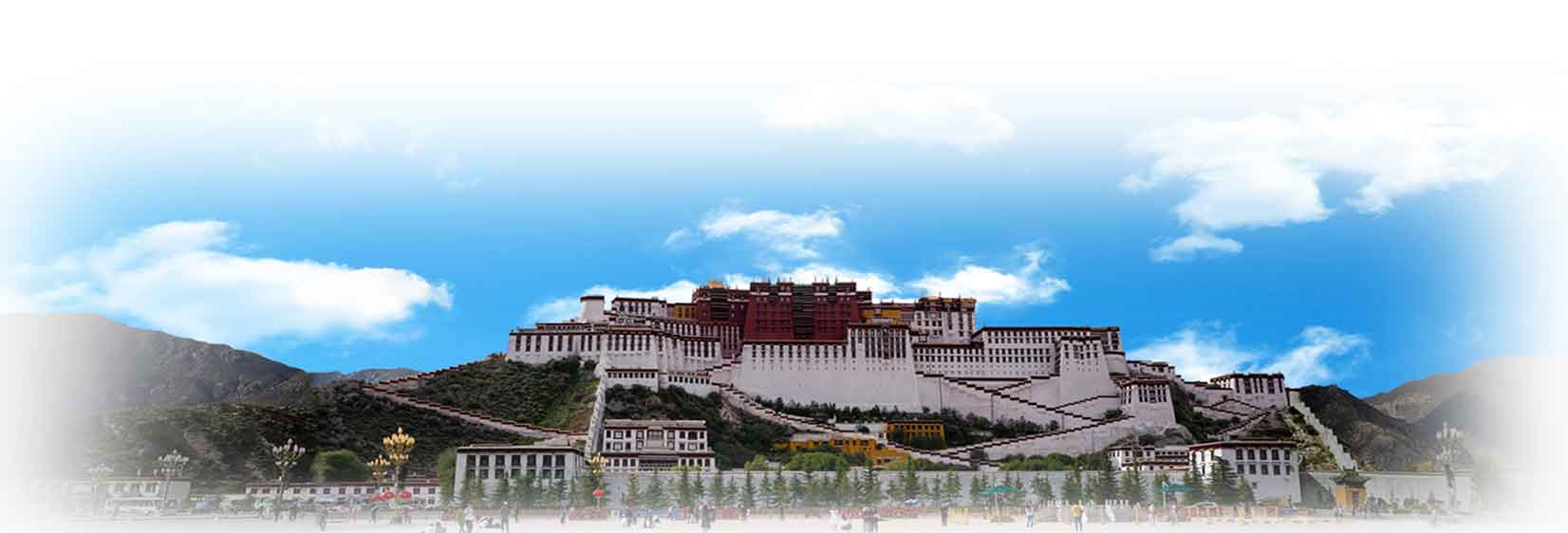This story is set in India, where a pious king and queen long for a son. After performing many rituals, a very special son was born to them. The royal couple were overjoyed, but soon after the queen died. Not long after that, the king became attracted to an ordinary woman he had seen in the crowd. He took her for his queen and she too gave birth to a son. These are the two brothers of the title, and they became inseparable. Soon the queen began to resent the older brother because he was destined to inherit the throne over her own son. She feigned an illness, saying that the only cure was the heart of the older son, who was a demon who had killed his own mother and now was hurting her. The king was persuaded but could not bring himself to kill his own son. Upon hearing all this, the older son was determined to flee the palace. His brother begged to go with him. So, one night they stole off into the forests.
THE BROTHERS DONYO AND DONDRUP

They suffered much on their journey across desolate plains, and one day the younger brother died of his deprivations. His surviving brother carried him on his back until he found a suitable place to inter him. In grief, he went on his way.
The gods Šakra and Brahma manifested as humans and with medicine brought the younger brother back to life, who immediately went off in search of his brother.
Meanwhile, the older brother had found a teacher living the life of a solitary hermit in the forests. He remained with his guru, serving him devotedly.
One day he was seized from the guru by a nearby king who was in search of a youth to offer as a sacrifice to a lake, which in the past had whose arrival was responsible for bringing good harvests and prosper to the kingdom. The dragon had not been seen for some time and the kingdom was in famine. The king, in keeping with the words of a soothsayer, plans to offer the older brother as a sacrifice. The king’s daughter, meanwhile, has fallen in love with the handsome prince and was unable to bear his sacrifice. Seeing this, the compassionate prince arranged for the sacrifice to take place secretly while she was asleep.
In the lake, the prince did not die but gave teachings to the nāgas there. Later he returned to his guru in his forest abode. The prosperity of the land increased and the king invited the guru in order to thank him for providing his disciple as a sacrifice to the dragon. The prince accompanied his guru, his face hidden by a cloth. While in the palace the cloth slipped from his face and the king and his daughter were overjoyed to see that the prince had not perished. The prince married the daughter and was installed as king.
One day on a picnic, the older brother, now a king, wandered off in the forests. There he met a bedraggled youth calling out his name and declaring that he had his brother’s share of food. The two brothers were reunited and returned joyfully to the palace.
Later the two brothers returned to their father’s palace. The king, happily reunited with his sons, forgave the queen for her misdeeds, and the two kingdoms were shared between the two brothers.
This story explicitly expresses Buddhist concepts throughout and even ends with the guru making predictions concerning the future rebirths of the main protagonists in Tibet. According to tradition, this story was written by the Fifth Panchen Lama, Losang Yeshé (1663–1737), and Thupten Jinpa has seen a woodblock print of this story in which the colophon reads: “The secret life of Panchen Losang Yeshé.” Also, there is a widespread view that the two brothers and the relationship between them represent the Dalai Lamas and the Panchen Lamas, and the bond that exists between them. However, the twenty-first story in the ancient Vetala Stories tells a tale of two brothers whose names match those of this opera.










